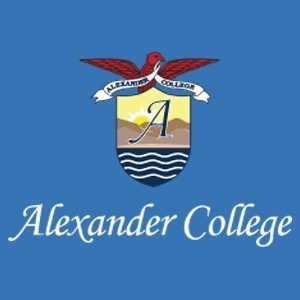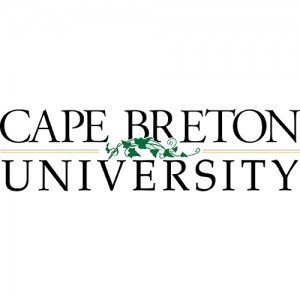Photos of university / #uofreginaofficial
If you are passionate about helping individuals, families and communities reach their full potential, consider our social work program. You will learn how to counsel individuals and facilitate groups, analyze social policy and programs, develop and administer social programs, empower community groups, conduct social research and write organized reports.
Field of study: Social Work
The Bachelor of Social Work (BSW) program at the University of Regina is designed to prepare students for a meaningful career in social services, focusing on empowering individuals, families, and communities to enhance their well-being. This comprehensive undergraduate program offers a blend of theoretical knowledge, practical skills, and field-based experience to equip graduates with the competencies needed to address a wide range of social issues. Throughout the program, students explore key areas such as human development, social justice, diversity, community development, and ethical practice, ensuring they are well-prepared to work in diverse settings including healthcare, child welfare, mental health, addiction services, and advocacy organizations.
The curriculum is structured to foster critical thinking, cultural competence, and a strong understanding of social policy and administrative skills. In the first years, students engage with foundational courses in sociology, psychology, and ethics, establishing a broad understanding of social systems and individual needs. As they progress, coursework delves into specialized topics such as trauma informed care, mental health, addictions, Indigenous social work, and multicultural perspectives. An integral part of the program is the practicum component, which provides hands-on experience in real-world social work environments. This field placement is supervised by experienced practitioners and is designed to help students apply theoretical knowledge, develop professional skills, and build a network within the social services community.
The University of Regina’s BSW program emphasizes a strengths-based approach, cultural safety, and anti-oppressive practices, ensuring graduates are sensitive to the diverse backgrounds of clients they will serve. The program also encourages students to engage in research projects, advocacy, and leadership activities to foster a proactive approach to community development and social change. Graduates of the program are well-positioned for entry-level positions in social work agencies, community organizations, government departments, and non-profit sectors, and are often encouraged to pursue further studies or professional certification. With a dedicated faculty of experienced social workers and researchers, the University of Regina’s Social Work program provides a supportive environment that nurtures future leaders committed to social justice and positive societal impact.
Program requirements for the Bachelor of Social Work (BSW) at the University of Regina include completing a total of 120 credit hours, which typically spans four years of full-time study. Applicants are generally required to have a high school diploma or equivalent, along with a minimum grade point average specified by the admissions office. Prospective students must submit official transcripts, demonstrate proficiency in English through standardized tests such as TOEFL or IELTS if applicable, and provide a personal statement outlining their interest in social work and relevant experiences. Prerequisite coursework may include subjects like psychology, sociology, and communications, although specific courses might vary.
Once admitted, students are expected to engage in a combination of classroom instruction, which encompasses core social work theories, ethics, policy analysis, and social justice, and practical field placements in community agencies, hospitals, or government organizations. These placements are designed to provide real-world experience under supervision, enabling students to apply their knowledge and develop professional skills. Participation in seminars, research projects, and workshops related to social work practice is also a requirement.
Graduates must demonstrate competency in critical thinking, ethical decision-making, and culturally competent practice. To qualify for graduation, students must achieve passing grades in all required courses, complete a minimum number of field practicum hours as specified by the program, and submit a final integrative project or paper. Some students may be required to undertake additional coursework if they lack background in certain foundational topics. The program also encourages involvement in extracurricular activities related to social justice and community service, which can enhance practical understanding and professional development. Upon successful completion, students are eligible to apply for registration with provincial social work regulatory bodies and pursue licensure or employment in the social services sector.
The University of Regina offers various financial support options for students pursuing a degree in Social Work. Tuition fees for the Bachelor of Social Work (BSW) program vary depending on whether the student is a provincial resident or an international student. Typically, in-state tuition rates are more affordable, with costs approximating CAD 6,000 to CAD 8,000 per year for Canadian residents. International students can expect higher tuition fees, often around CAD 20,000 annually. In addition to tuition, students should budget for incidental fees, textbooks, supplies, and living expenses. The university provides detailed fee structures on its official website, allowing prospective students to plan their finances accordingly.
Financial aid options include entrance scholarships, awards, and bursaries available to both new and returning students. The university administers numerous scholarships specifically for social work students who demonstrate academic excellence or financial need. Students are encouraged to apply early for these opportunities, which are typically merit-based or need-based. Furthermore, students can access government financial aid programs such as Student Grants, Canada Student Loans, and Saskatchewan Student Loans, which provide low-interest loans and grants to eligible students. Work-study programs are also available, offering part-time employment opportunities on or near campus to help offset educational costs.
Many students in the Social Work program also choose to supplement their income through part-time work, internships, and co-op placements aligned with their field of study, which sometimes offer stipends or hourly wages. The university’s Career Centre offers resources and guidance to help students find suitable employment opportunities. Additionally, students are encouraged to seek external scholarships and funding from community organizations, professional associations, and NGOs that support social work education and practice.
The university promotes financial planning and provides financial literacy resources to help students manage their budgets effectively throughout their studies. It is advisable for students to explore all available financial aid options early, prepare necessary documentation, and meet application deadlines to maximize their funding opportunities. Overall, the University of Regina is committed to supporting social work students financially, facilitating access to quality education and enabling students to focus on their academic and professional development without undue financial burden.
The Bachelor of Social Work (BSW) program at the University of Regina is designed to prepare students for professional practice in social work, emphasizing the development of critical thinking, social justice, and ethical decision-making skills. The program provides a comprehensive curriculum that combines theoretical foundations with practical field experiences, enabling students to effectively serve diverse populations and address complex social issues. Students in the BSW program engage in coursework covering areas such as human behavior and the social environment, social policy, research methods, and practicum courses that offer supervised hands-on experience in community agencies. The program aims to foster a deep understanding of social systems, mental health, child welfare, community development, and Indigenous social work, among other topics. The University of Regina’s BSW program is accredited and designed to meet the requirements for registration as a professional social worker in various regions. It typically takes four years to complete, including a practicum component that ensures students gain real-world experience. Graduates of the program are eligible for employment in a wide range of settings including healthcare, educational institutions, government agencies, non-profit organizations, and Indigenous communities. Advanced opportunities through graduate studies in social work or related fields are also available for graduates seeking to enhance their expertise. The university emphasizes a culturally competent and inclusive approach, aligning with the diverse needs of the population it serves. Overall, the program aims to equip graduates with the knowledge, skills, and professional competencies needed to make a meaningful impact through social work practice in a variety of social contexts.





